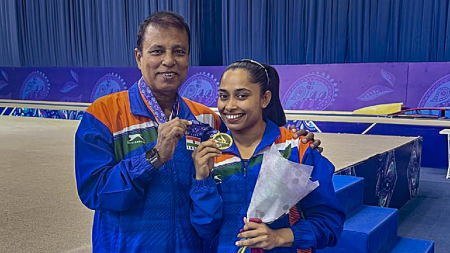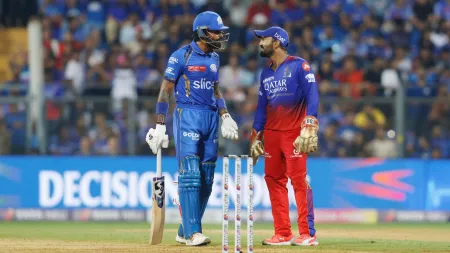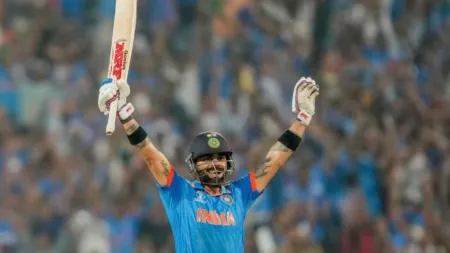T20 World Cup: ‘Make the most of life, it can’t last forever’ – after conquering mental demons, Aussie Ashton Agar focusing on just being a ‘good person’
T20 world cup 2024 in USA-Caribbean is about location, relocation, and revival. For the US, it’s their biggest attempt in trying to locate themselves in the cricketing world map. For players like Ashton Agar and for smaller associate countries, it’s about revival of a dream at the biggest stage.
“What’s happening, mate? Am I the enemy now? I am just trying to help. You are always fighting me,” when Justin Langer, Western Australia’s coach, asked him one day in 2014, Ashton Agar broke down. “I don’t know. I have no idea. I don’t know.”

A game against Tasmania in Hobart. Agar bowled two balls, two good deliveries, but a “deep sadness” welled up in him. After another delivery, he felt a tear breaking out from his eye. He threw away the ball, got his hat from the umpire, walked out of the ground, and started to sob.
A few months prior, in 2013, not long after he stunned the cricketing world with a free-flowing 98 in the Ashes on debut as the No.11 batsman batting with his hero Phil Hughes whose poster was on his bedroom wall, before being dropped after the next Test, Agar’s life began to turn blue.
One afternoon, he was in his bed after training, unshowered, unchanged. Just a short rest, he would tell himself, but when he would stir out, darkness enveloped him. He would admonish himself. Next day, same thing. A week would sink into a black hole.
“It was like my mind was in this other place. It was like I was above myself watching down, watching something happen to me, watching myself kind of fading away.
“It feels like your loving energetic fun soul is getting sucked right out of you. And you feel all of these emotions when you just want to cry, you don’t want to talk, you don’t want to eat, you don’t want to go out and you feel so numb. You feel everything and nothing at the same time, that’s what was so strange …” Agar says in journalist Neroli Meadows’ podcast ‘Ordineroli Speaking’.
“Our lived lives might become a protracted mourning for, or an endless trauma about, the lives we were unable to live,” once wrote psychoanalyst Adam Phillips. That sentiment was Agar’s lived experience. “I was never there, couldn’t concentrate or give myself to any situation.” A disembodied out-of-body experience was slowly turning worse.
View this post on InstagramA post shared by Ordineroli Speaking (@ordineroli_speaking)
Mental blues. Self-isolation. Deep sadness. Brief ray of hope. Panic. Anxiety. Guilt. Trapped. Agar was gripped with terror about why it was happening to him – he thought he was the happy guy, laughter ever-ready to erupt from his throat. The guy who pulled a catch to deep midwicket on 98 on debut, took his helmet off, shrugged with a smile at his partner and walked back to the pavilion in a beatific state of mind. Now, he was reduced to a hollow husk.
He was talking less and less, turning increasingly irritable, shoving his girlfriend and friends out of his life. He didn’t open up, lest it worried them, lest it embarrassed him – and above all, because he didn’t know what was eating him alive.
People on the outside thought it was the come-down from the high of his debut, being dropped after just one game, but he insists that wasn’t the case.
Cricket was always the ‘wonderful release’ all his life, a place of his mental refuge. “Maybe the emotional rollercoaster (coming down from high) played a part but there was certainly a transition from that frustration to sadness to isolating myself. From then on frustration… then deep sadness. I didn’t know why this was happening.”
If it wasn’t cricket, then what was the trigger?
***
A week after 19-year-old Agar was pub-hopping with his Australia team-mates, he walked into his first Test with the team tottering at 117 for 9. Off the sixth ball he faced, he swivelled into a pull but the ball just about lobbed over the bowler. England seamers thought the short ball was the way to go.
Mistake, as Agar pulled himself into public imagination. At one stage, Ian Botham would coo on air : “Let me tell you these shots aren’t that of a No. 11”.
The light went out in the next Test at Lord’s. “I hated it”. A finger injury meant the ball wouldn’t travel out of his left hand as he wanted and the teenager was left wondering why his art left him bereft at the highest stage.
Even back on the first-class circuit, total control proved elusive. No doubt, influenced by his mental demons.
“I started being quite argumentative, small things would make me really angry. I started looking at life a bit differently,” he tells Neroli. Langer would cop it, so did his childhood team-mates and once even his brother Wes, who would also later play for Australia, getting his Baggy Green from Ashton.
But back then, it was all dark. A barbecue at their aunt’s holiday home sprang up in his memory in that podcast. “I say something so mean to Wes, I immediately regret it.” The brother was shocked and it’s the moment he realised something was wrong with the man with whom he had played all his life in the backyard.
Agar would also break up with his girlfriend. Everything felt like so much effort. “Even listening to music in the car would feel too much noise. Simple conversations could get me frustrated. So many things happening in my head, I couldn’t do it.”
Incredibly, he would keep playing cricket – “my release” – and keep popping in and out of Australian teams too. A peek at various videos of him playing from the decade is astonishing – in how humans can lie to themselves, lie to the world, present a face, act as if everything is normal, while inside the seething monster slowly eats up the soul.
“I kept everything away. I wish 100 percent I had asked for help earlier… I wish I listened to people who had offered and gone back to them to say ‘yes, you are right.’”
Then that game in Hobart against Tasmania. An over of tears. Help arrived. He was stitched up with Australia’s psychologist.
***
Early 2020, Agar was on a plane when he pulled out his journal and started to scribble down questions and answers: ’What do I want out of my life? I want a good life. What does it mean? Happy and loving relationships with Maddy (his girlfriend), family, I want a beautiful house, I want to be close to my brothers Will and Wes, and look after mum and dad.”
His father was a source of guilt that had pushed Agar further into silence, instead of opening up. Memories of him coming dead-tired from work spring up – soiled, exhausted and telling the kids ‘keep doing what you are doing, you don’t want this [life]’.
“In the murky 2013-14 period, I felt guilty. He (Father) didn’t have much work in that phase, and I felt terrible, and I had started to see good money, living a life anyone wants to live but I wanted to throw it all away just to feel normal again, and that I found very difficult. You see him coming home like that. That was hard to deal with. Very confusing. How dare I feel this way when he is doing all that?”
At the bottom of the journal, on that plane, he wrote the most important line: ‘I just want to be a good person’. Then he added, ‘how do I get there?’
That opened up the mental floodgates. He realised he had to stop kidding himself that he can do it on his own, needed to be more honest and open. His girlfriend would welcome him back, chats followed with psychologists, with friends.
And then one day in 2020, the memory of a childhood pain hit Agar like a tonne of bricks. That was the source of his fears. The year had started with the sadness of the past turning into real panic attacks. He would wake up in the morning with “my heart thumping”. Breathing speed would escalate. “A horrible crippling panic”. It was physically affecting him now.
That morning, it escalated so much that he felt he was going to pass out. That’s when the childhood memory sprang up.
Ashton Agar is 12, trying to rise from his study table. “My arm, shoulder felt really lower”. He could not hold his shoulder up. He checks with his parents but they don’t see anything wrong. He feels it, though. From the right eye, back, shoulder blade … the right side feeling very weak. “From that moment on, I thought I have to consciously hold up my shoulder for the rest of my life.” The pain would return in certain social situations, “standing up, I hated it, hated sitting down”.
Amazingly, it didn’t intrude on his cricket. “Because I was distracted”. That’s where his deep-ingrained feeling of cricket as a release probably stems from. Hours on the field were not just a refuge, but also a source of joy. Away from it, the blues would return. “Always figuring out how this happened, it felt it had total control over me and dictating me and it was an unbearable nine years.”
And when he nearly passed out that 2020 morning, feeling like his brain had totally taken control, Agar realised this could be the trigger for other stuff. He met Lorimer Mosely, “a pain scientist” in Ashton’s words, who runs tamethebeast.org to deal with chronic pains like Ashton’s.
The duo got working to arrive at a better understanding of the chronic pain and craft a conscious way to manage it. Simultaneously, Agar continued therapy with his psychologist Michael Lloyd. The solution was “learning to be present again, sit with it, let it pass naturally … have thoughts but don’t be had by your thoughts, let it come and go”.
That insight about feelings – have them but don’t be had by them – was the jail-breaker. The head began to heal, the heart opened up and optimism flooded in.
Near the end of the chat with Neroli, Agar says a line that sticks. “Every-moment happiness isn’t my goal anymore, that doesn’t exist”. He then talks about giving his best self, being open and present, and how it has reflected in his cricket: “feel like a kid in the backyard again”. He then has a suggestion for us, “make the most of it [life], it can’t last forever”.
Get latest updates on IPL 2024 from IPL Points Table to Teams, Schedule, Most Runs and Most Wickets along with live score updates for all matches. Also get Sports news and more cricket updates.
Disclaimer: The copyright of this article belongs to the original author. Reposting this article is solely for the purpose of information dissemination and does not constitute any investment advice. If there is any infringement, please contact us immediately. We will make corrections or deletions as necessary. Thank you.





